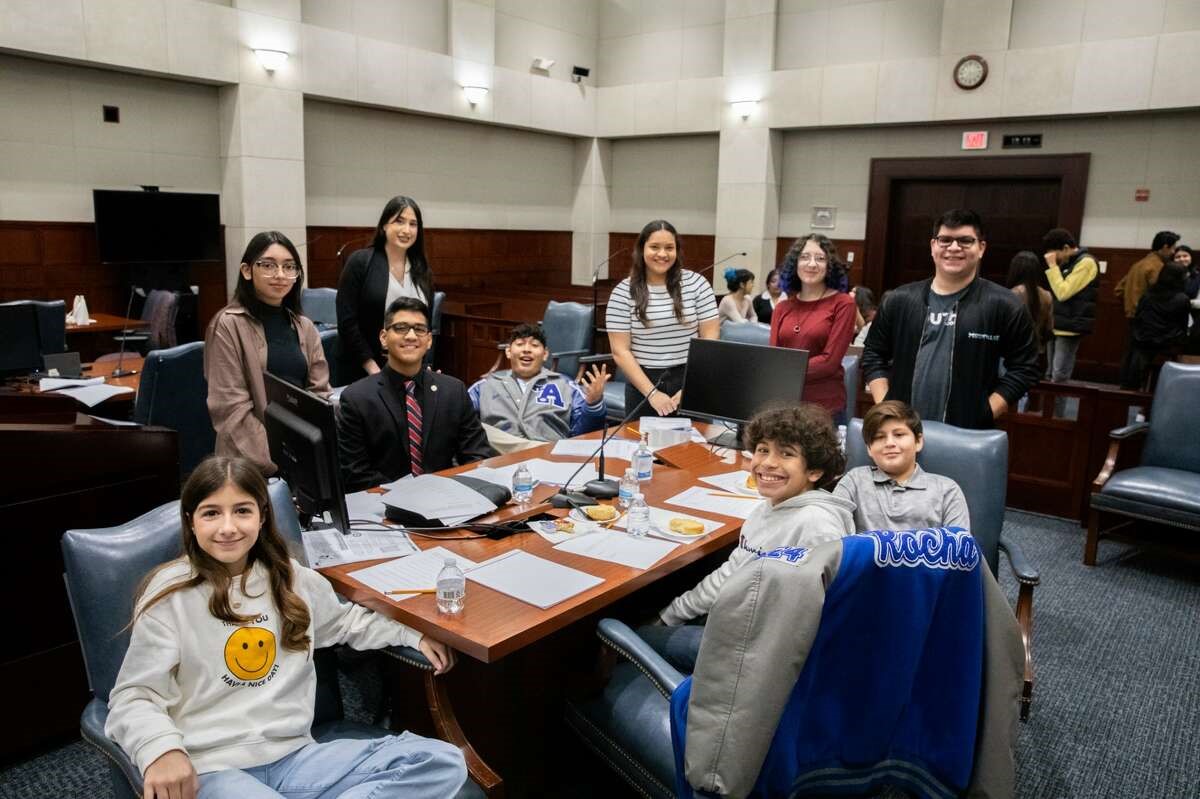By District Judge Diana Saldaña with contributions from Magistrate Judge Diana Song Quiroga.

Led by the desire to honor the legacy of my mentor, the late Chief District Judge George P. Kazen, the Laredo division of the Southern District of Texas has launched two ambitious civics education programs: one for high school students introduced in summer 2023, and one for middle school students launched during the 2023-2024 school year.
The federal Judiciary can seem like a distant concept to high school and middle school students, but it is the constant backdrop of their lives on the border. Through the Kazen Fellowship Program for high school students and the Middle School Citizenship Academy for students in sixth through eighth grade, Magistrate Judge Diana Song Quiroga and I hope to inspire the youth of Laredo to embrace good citizenship and feel empowered to practice it at home, at school, and in their communities.
Thirty percent of the people in Laredo are children, many in single-parent households. We have such a high percentage of children from low-income families that each of our schools is a Title I school with free or reduced lunch. We want to leverage the resources of the courts and the local bar association to expose these underserved students to the bigger world and things they may not have seen before, so they will be excited about participating in our nation’s democracy.
We launched the first annual Kazen Fellowship Program in summer 2023 with 22 high school juniors and seniors representing each school in the city. The program aims to raise young civic leaders who value the principles of our democracy and who want to share that spirit with others.
The inaugural cohort of Kazen Fellows was a carefully nominated and selected group of low-income students who spent more than a month shadowing judges and lawyers, taking classes, and, ultimately, participating in a mock trial. They now lead the Middle School Citizenship Academy in its pilot program, which includes four monthly lessons on the rights, privileges, and responsibilities of citizenship. The experience culminates in a mock trial and a graduation ceremony at the federal courthouse in April.
I have led the program with Judge Song Quiroga, with contributions from assistant U.S. attorneys, assistant federal public defenders, and attorney volunteers from our local bar association. However, the high school fellows have been the direct teachers and mentors for the middle school students.
The fellows have shaped the program by building a peer-to-peer learning environment that has impressed upon the middle schoolers the importance of understanding their civic obligations and responsibilities.
As teenagers, the fellows know how to present educational material in an innovative, engaging, and relatable manner. They have created their own visual aids, learning devices, and computer-based games to help explain key terms and concepts that might otherwise be difficult for middle school students to understand.
Passing along their knowledge to the middle school students sets the fellows apart from the interns in similar programs across the country. Here, knowledge does not start at the court and end with the fellows. Instead, it is incubated in a new generation of leaders to be passed on to younger students and into their communities.
For the middle school students, the opportunity to learn about the Constitution, the Bill of Rights, and the Judiciary from older students, while gaining positive exposure to the federal courts, is invaluable. It builds their sense of civic engagement, gets them excited about participating in the democratic process, and makes the legal system less intimidating and obscure.
These educational programs allow judges, lawyers, and young people to work to improve community-wide understanding of democratic engagement and to pass on valuable tools for civics education and good citizenship to new generations.
I believe that opening the courts to our youth is crucial in fostering public confidence in the rule of law. Such confidence is key to our future here in Laredo and across the country.
Any judge who engages in civics education programs will tell you that we receive so much more than we give. The impact is immeasurable as we become better judges and build the public’s trust in the Judiciary.
